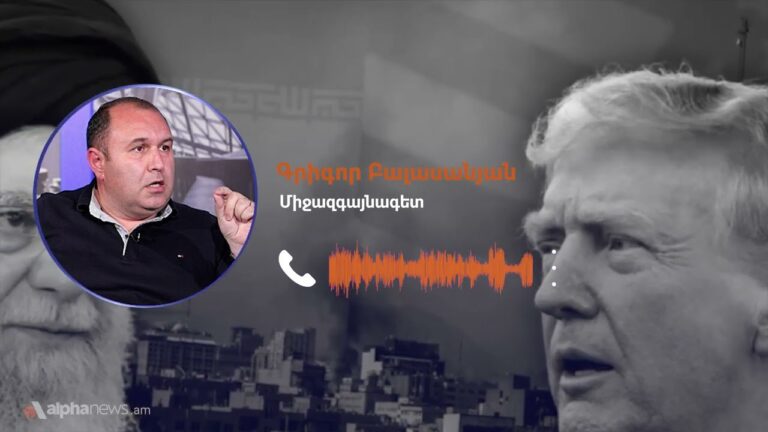Pashinyan’s preferred guarantor of security is no longer a world gendarme
October 03 2024, 12:54
On October 1, Iran launched a massive missile attack on Israel in response to the assassination of Hezbollah leader Hassan Nasrallah and General of Iran’s Islamic Revolutionary Guard Corps (IRGC) Abbas Nilforushan. Iran has fired about 180 missiles.
The situation is really not the most ordinary, and it is worth dwelling on its analysis in more detail. Let’s begin with the fact that, according to the Reuters news agency, Iran warned Russia and the United States about an attack on Israel. It is noteworthy that before Iran’s attack, Israel’s news outlet Ynet reported that Israel was discussing the possibility of a phone conversation between Prime Minister Benjamin Netanyahu and Russian President Vladimir Putin to ask him to influence Iran.
It may sound too shocking, but it proves that the world order is changing before our eyes and there is no longer a sole gendarme in the world. Among other things, this is a consequence of the Russian military operation in Ukraine, a consequence of the fact that the Russian army is solving its tasks. That is why Iran warns both the United States and Russia.
Moreover, this is happening as relations between Armenia and Russia are almost irretrievably damaged at the current historical stage, as evidenced by Ararat Mirzoyan’s statements that neither Russia nor the CSTO react in case of attacks on the internationally recognized borders of Armenia and that Russia has not proved its worth, etc. In this context, even the recent visit of Russian Prime Minister Mikhail Mishustin will not change anything.
Returning to the situation with Iran’s strikes on Israel, it is worth recalling Iranian President Masoud Pezeshkian’s recent statements that Western countries (the United States and European countries) deceived Iran by promising a ceasefire in Gaza in exchange for renouncing revenge for Ismail Haniyeh.
It is hard to believe that the president of a country like Iran can openly deceive his people and talk about promises that did not take place. We can consider the option in which the US and the EU really promised something to Pezeshkian, but due to the practice rooted in the Western political tradition, they simply “dumped Tehran.” Our Iranian colleagues were deceived.
However, it is more likely that the United States did negotiate with Iran but overestimated its influence on Israel and London, which eventually led to the fact that not only peace was not established in Gaza, but there is also a high probability of war between Israel and Lebanon. In other words, “a gendarme capable of agreeing on something and putting agreements into practice anywhere in the world” no longer exists. This is perhaps the most important conclusion from the events of the October 1 night.
The only open question is how, in such circumstances, Nikol Pashinyan and his team can rely on Washington’s ability to guarantee the implementation of any agreements. Can someone in Pashinyan’s team give clear explanations on the following question: if Britain’s influence on Israel is enough to unleash a huge regional war in the Middle East, why shouldn’t it be enough to unleash a war in the South Caucasus?
Think about it…







